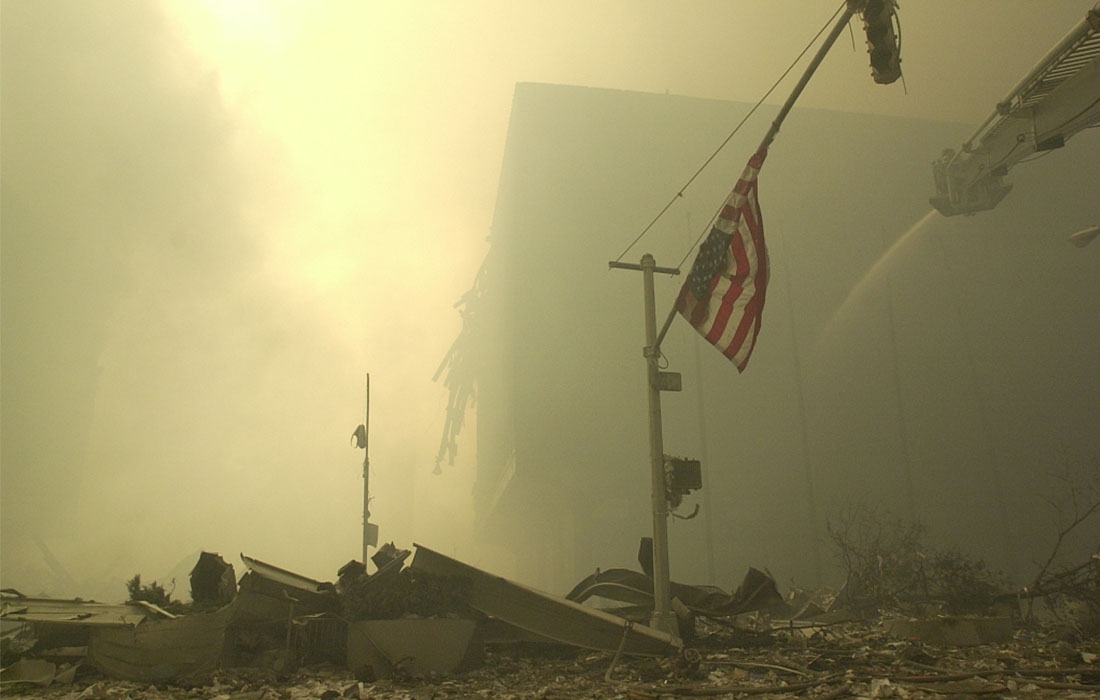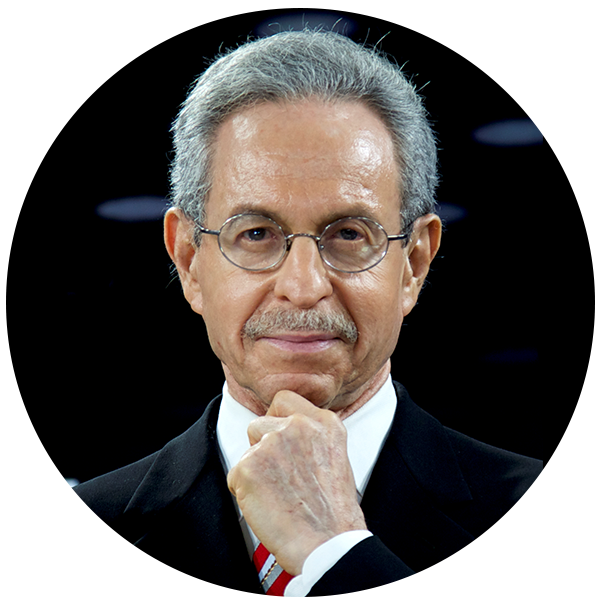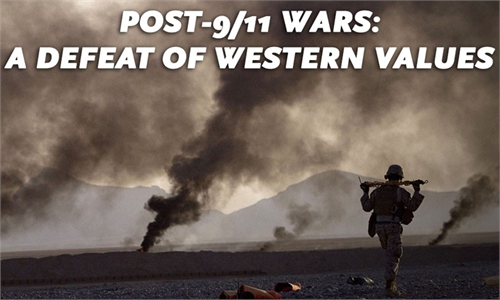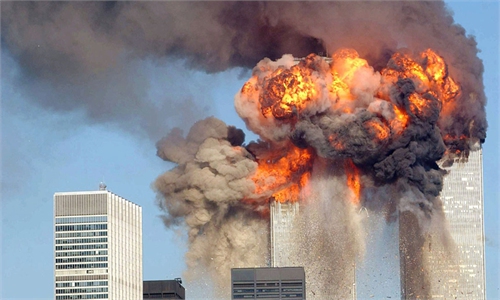Ignorant forces who aim to exploit, oppress others are chief culprits creating conflicts today

Photo: CFP
I remember so vividly where I was on September 11, 2001. I was transfixed in my bed in Los Angeles, watching the hypnotic horror of the Twin Towers collapsing after being hit by hijacked commercial aircraft. I also lived in New York, uptown from ground zero, so it was very personal. Many Americans can tell a similar story, as the indelible tragedy played out in real life and real time on TV sets across the country.That singular event triggered the American "War of Terror," which we assumed would be the defining theme of the early 21st century. But our assumption was wrong. It is not what happened.
The prevailing paradigm at the time was that radical Islamic fundamentalism was as if a metastasizing cancer, spawning numerous non-state terror groups, and that US national security strategy needed to shift instantly from big power rivalry, exemplified by the Cold War with the Soviet Union, to discovering and eliminating these small cells of religious fanatics.
Some in the West took up Samuel Huntington's divisive idea of a "Clash of Civilizations" as the age-defining rubric, taking as fact that there is fundamental and inexorable incompatibility between national cultures founded on political Islam and those founded on principles of liberal democracy. Some in Arab countries sought to exacerbate this simplistic and perhaps racist political framework by acts of terror, seeking to drive Westerners out of Muslim lands or to goad Westerners into attacking Muslims lands in order to alienate Muslims and cause instability, thus enabling Islamic fundamentalists to overthrow and take over Arab countries.
In response, American strategy fixated on the supposedly "enlightened" if patronizing notion that if certain Muslim majority states could be converted into Western-style democracies, even by force, then the spawning grounds of Islamic fanaticism would be subsumed by a modern Islam. In this way, terrorism would be greatly reduced.
This US strategy was flawed on multiple levels. Additional terrorist attacks were fewer than feared and almost all were thwarted. Most important, Western-style democracy was not suited to the cultural and religious traditions of these Muslim-majority countries where ethnic allegiances to local tribes and cultures were far stronger than to artificial nation-states whose arbitrary borders had been drawn up by prior colonial powers. Thus, tragically, American blood was spilled and treasure spent in failed missions in Iraq and Afghanistan. Military interventions caused much suffering and brought about no democracies.
The ignominious departure of US forces from Afghanistan is widely heralded as tolling the bell of America's decline as the world's policeman. While the withdrawal process was chaotic and disgraceful, whether or not the withdrawal itself from America's longest war will prove to be a good thing or a bad thing may depend on perspective. The problems of unstable, rogue nations, and of fanatical groups motivated by extremist theology, will not go away. Other nations, some of which may now cheer America's retreat, may now have to share the burden. As an American, I welcome that. But only the hindsight of history can render final judgment.
The 20-years ago expectation that Huntington's Clash of Civilizations between the Muslim and Western worlds would epitomize world geopolitics has been eclipsed. Big power rivalry re-emerged with the spectacular rise of China, active dynamics of Russia, growing engagement of India, and increasing role of ASEAN countries. Regional powers strengthened, especially Iran, Saudi Arabia and Turkey in the Middle East.
Indeed, in the Middle East, strategies, players, relationships, and quasi-alliances have been scrambled. Non-Arab Iran and Arab Saudi Arabia, both Muslim, are fierce rivals; Turkey operates in northern Syria, the eastern Mediterranean, the Caucasus. Russia is in Syria. Perhaps the most direct refutation of the Clash of Civilizations theory is the Abraham Accords, which is forging a novel partnership between Israel and Arab-Muslim Gulf States that serves as a quasi-alliance against Muslim Iran, but that, more importantly, prioritizes modernity and technology in the heart of the Middle East.
As such, while Huntington's theory helps highlight issues of culture in affecting geopolitics, it is overly simplistic and ignores diversities of culture. Thus, as an overarching political theory, the Clash of Civilizations has been rendered sterile.
If "No man is an island" as the English poet John Donne wrote, then certainly no country today can function well in isolation. None of humanity's greatest problems - climate warming, pandemics, global poverty and inequality, nation-state and ethnic confrontations, imbalanced economic development - can be solved by single countries acting alone. Moreover, no walls can be built, no borders can be sealed - figuratively or literally - that can prevent the problems of others from affecting all regions and peoples. The viruses of pandemics and the rising flood waters of climate change have no respect for national boundaries. The global commons has become fragile, and all countries, especially the largest, must cooperate to care for it.
In today's world, the real conflict should not be between opposing political systems or differing ethnicities, but rather between the forces of modernity, competence and development on the one hand, and those of ignorance, exploitation and oppression on the other. By this calculus, China and the US should be sitting on the same side of the table. And this is why the cascading free fall in US-China relations is so counterproductive for both peoples and for all humanity - and why the recent phone call between President Biden and President Xi is a cause for hope.
The author is chairman of The Kuhn Foundation. He received the China Reform Friendship Medal in 2018. opinion@globaltimes.com.cn




